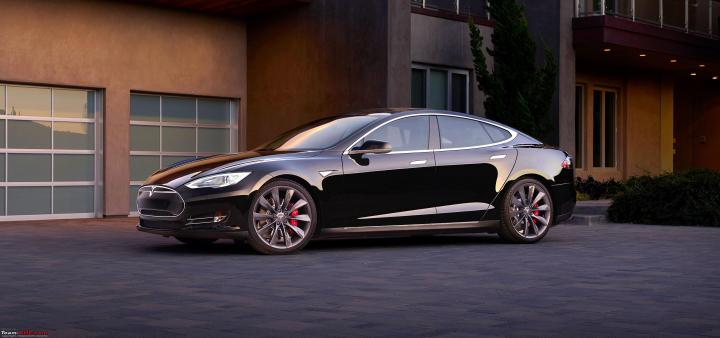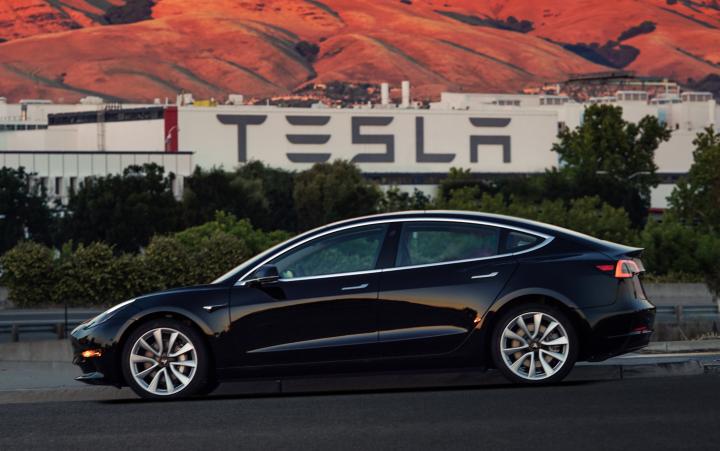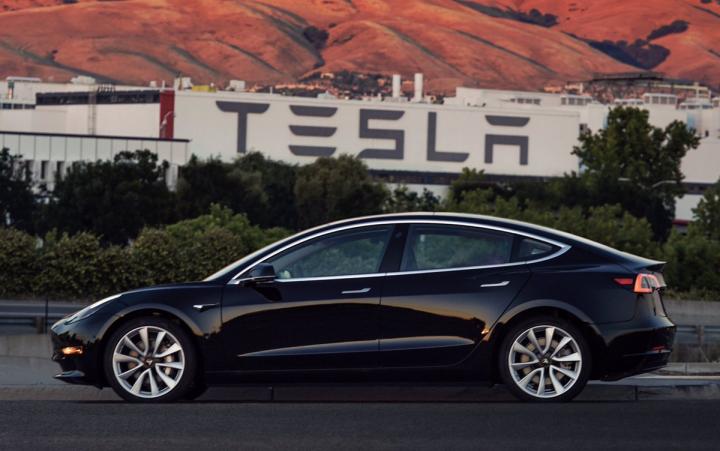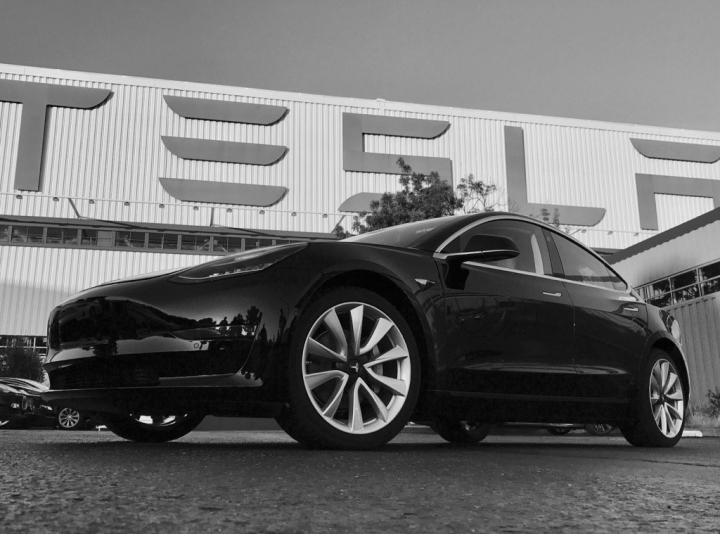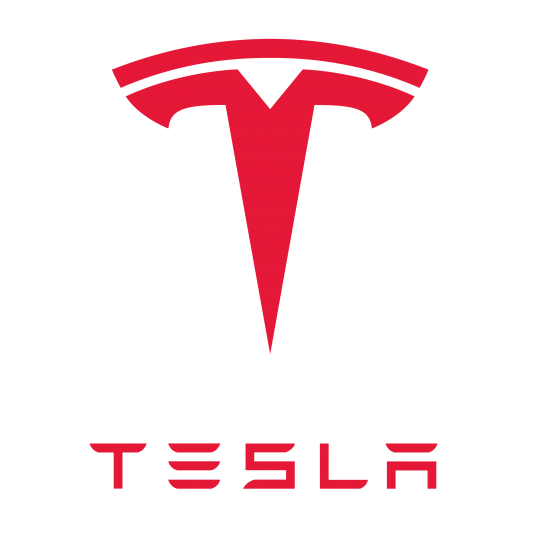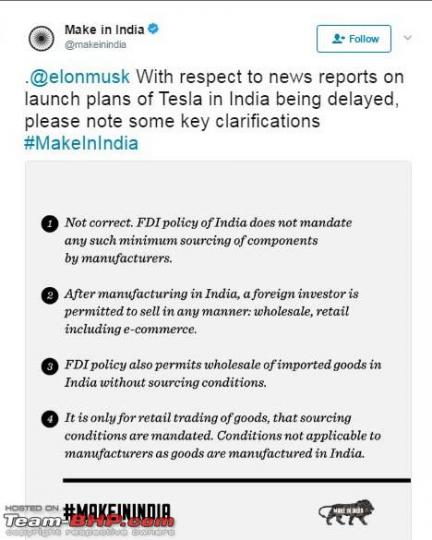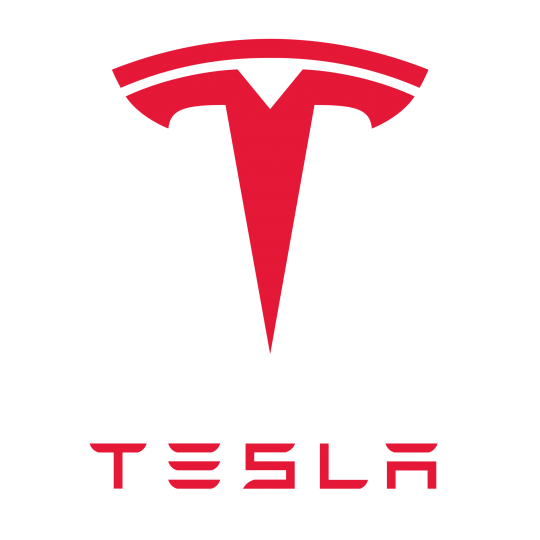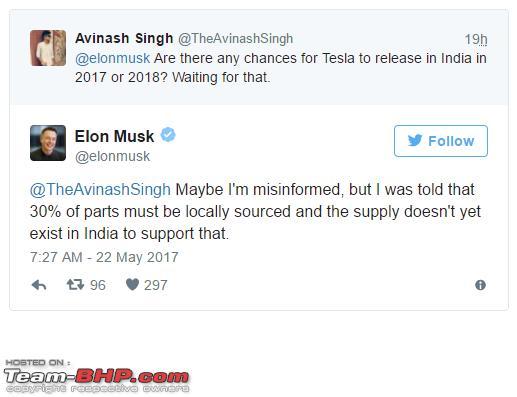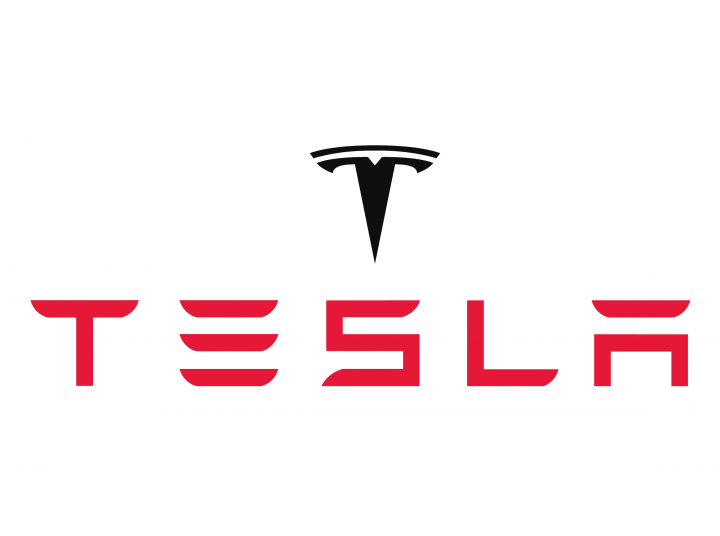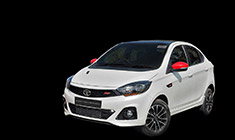News
NTSB (USA): Over-reliance on technology led to Tesla crash
The National Transportation Safety Board (NTSB) - an independent U.S. government investigative agency, has come up with a report on the May 7, 2016 crash that killed a Tesla driver when his car collided with a truck. The car's autopilot function was engaged at the time of the crash.
In the crash, a 2015 Tesla Model S 70D car struck a semitrailer. At the time of collision, the truck was making a left turn from the highway. The car struck the right side of the truck, crossed below it, and then went off the road. The impact with the underside of the semitrailer tore off the roof of the car.
The report indicates that the crash was a result of the truck driver not yielding to the car and the Tesla driver's lack of attention and over-reliance on vehicle automation. The frequent and excessive use of the autopilot function resulted in the driver getting too dependent on the technology and not paying attention on the road. The board not only faulted the Tesla driver for not paying attention, but also noted that the autopilot did not do an adequate job of detecting other traffic. The system also did not inform the driver early enough to allow for enough reaction time.
The board issued seven suggestions at the hearing - including three for Tesla and every other automaker that offers a level 2 self-driving car. The Society of Automobile Engineers defines 6 levels of automation from fully manual to fully autonomous. In a level 2 system, the car controls the steering, acceleration and braking, but it is the human that is responsible for monitoring the surroundings and he/she must be ready to take over in case the system fails. The NTSB board suggested that manufacturers should not let a product be used, in a manner that is "inconsistent with its design." The board members also asked for recommendation on systems for deciding whether drivers are actually paying attention behind the wheel.
A board member mentioned that Tesla allowed the driver to use the autopilot system outside the environment for which it was designed. Tesla has said that the company will work towards making customers understand that autopilot is not a fully autonomous system, but needs the driver to be attentive at all times.
- Tags:
- Indian
- Autonomous Vehicle
- Tesla
News
Production-spec Tesla Model 3 revealed
Tesla has revealed the production-ready Model 3. The car is available at prices starting from US$ 35,000 and is the company's third model after the Model S and Model X. Along with the reveal, the company started deliveries of the car to employee reservation holders.
The Model 3 comes with a battery that has a range of 352 km (EPA estimated) as a part of standard equipment. The car is claimed to do the 0-96 km/h sprint in 5.6 seconds and touch a top speed of 209 km/h.
The Model 3 measures 4,694 mm in length, 1,849 mm in width and 1,443 mm in height. It has a wheelbase of 2,875 mm. The front and rear boots give the Model 3 a combined luggage capacity of 425 litres.
On the inside, the car features a dual zone climate control system, 15-inch touchscreen with FM / internet radio, fabric seats, a storage space in the central console with 2 USB ports, Wi-Fi and LTE internet connectivity, keyless entry and remote air-conditioning, which can be operated using the Tesla app.
The Model 3 is equipped with features such as 8 airbags, all-LED headlamps and tail lamps, collision avoidance systems, 3-point seatbelts with reminders for all occupants, two children) in the rear seats, ABS with EBD, ESC and traction control and tyre pressure monitoring system.
Tesla provides a standard warranty package of 4 years or 80,000 km with the Model 3 and a battery warranty of 8 years or 1,60,000 kms.
The car also comes with an optional long-range battery, which has a range of 496 km. With this battery, the car has a claimed 0-96 km/h time of 5.1 seconds and a top speed of 225 km/h.
The Model 3 is being produced with the long-range battery at the Tesla Factory in Fremont, California. The deliveries of the car to customers are scheduled to commence in October 2017, while the production of the car with the standard battery is expected to start in November. The production of the all-wheel drive version of the Model 3 and deliveries of left-hand drive cars is scheduled to begin in 2018. The production of right-hand drive cars is expected to commence in 2019.
- Tags:
- Indian
- Tesla
- Model 3
- Electric Vehicle
News
Tesla starts production of Model 3, images revealed
Tesla has started production of the Model 3, which is being considered to be the company's most important product, owing to its relatively affordable positioning. The company's founder and CEO, has released images of the first production-spec version of the Model 3, which looks quite similar to the prototypes that were shown in March last year.
The first Model 3 will be owned by the CEO himself, after the first actual pre-order customer gifted his place in the queue to Musk as a birthday gift. The first batch of the Model 3 will include 30 units, which will be delivered to customers on July 28 during a handover ceremony. The company is expecting to increase production in the coming months in order to meet the exhaustive order book of over 4 lakh units.
In order to ease the production run, Tesla is offering limited personalization options with the Model 3 for the time being. These include the option to choose the colour of the car and the size of alloy wheels.
With a starting price of US$35,000, the Model 3 is the most affordable car in the Tesla line-up. The US-based electric car maker claims that the Model 3 can cover a distance of 215 miles (346 km) on a single charge and can accelerate from 0-60 miles/h in under 6 seconds.
- Tags:
- Indian
- Tesla
- Model 3
- International
News
Tesla Model 3: Global deliveries to start from July 28
Deliveries of the Tesla Model 3 will commence from July 28, 2017. This information was revealed by the company's Chief Executive Officer (CEO) - Elon Musk, in a series of tweets.
The entrepreneur, through one of his tweets, announced that the Model 3 has passed all regulatory requirements for production. Thus, production of the car will commence in the coming weeks. The first batch of 30 units of the Model 3 will be delivered to customers on July 28. The company is hoping to increase production in the following months and deliver 100 cars in August and over 1,500 cars in September. The CEO has also revealed that the company is aiming to produce 20,000 cars every month from December 2017.
The Model 3 is the most affordable car coming from the US-based electric carmaker. At a starting price of US$ 35,000, the Model 3 is being claimed to be the company's first mass market car. Bookings of the Model 3 had started after it was unveiled in March 2016. Tesla claims to have received over 4,00,000 orders for the car. Hence, the company is trying to accelerate production to meet the demand.
- Tags:
- Indian
- Tesla
- Model 3
- International
News
Tesla in talks with Indian Govt for import duty exemption
Tesla is said to be in talks with the Government of India for getting an exemption from import duties on its electric cars. The automaker is trying to get a temporary exemption from the Indian Government, until it develops and starts local manufacturing operations in the country. This information was revealed by the company's CEO - Elon Musk, through his twitter account.
The Indian Government is showing inclination towards electric cars. The Union Energy and Power minister - Mr. Piyush Goyal has already expressed the government's plans to achieve total electrification of new cars by 2030. For this aim to materialize, it is important to bring Tesla in India.
Currently, Mahindra Electric is the only carmaker that is developing and selling electric cars in the country. The entry of Tesla into this marketplace will not only provide customers a highly-aspiration electric car brand, but will also boost the development pace of the electric car market in the country.
Musk is thus trying to take advantage of the government's interest in this segment to get the import duty exemption. Under the current scheme, CBU cars imported into India attract a duty of 100%-120%. This can result in a sharp surge in the price of Tesla cars in India, which could lead to drop in prospective customer interest. As a result, Tesla wants a temporary relief from import duties for its cars, until its sets up a dedicated manufacturing base in the country.
- Tags:
- Indian
- Tesla
- Import
- Government of India
News
Tesla releases first teaser image of Model Y crossover
Tesla has released the first teaser image of the Model Y compact crossover, which will be placed a slot lower than the Model X. The said image was released at the company's Annual Shareholder Meeting at the Computer History Museum in Mountain View, California.
Tesla's CEO and serial entrepreneur - Elon Musk confirmed that the Model Y will be built on an all-new platform. This is a departure from the company's earlier plans of using the Model 3's platform for the Model Y. The model is expected to be unveiled in 2019 or 2020.
The released teaser image doesn't give away any significant design details about the crossover. However, speculations suggest that the overall design will be inspired from the Model 3. Whether the Model Y will get the gullwing doors like the Model X is something that isn't known yet. However, it will continue to come with Tesla's autonomous driving functions.
Musk also indicated that Tesla might open a new production factory for the Model Y, as it expects the compact crossover to perform even better than the company's yet to be launched entry sedan - the Model 3.
News
Rumour: Tesla in talks with component makers for India plant
US-based electric car maker, Tesla, is said to be in talks with its global component suppliers for setting up a manufacturing facility in India. Reports suggest that the company is working with the Dräxlmaier Group and Magneti Marelli for sourcing electric car parts in India. The company has also suggested that if some parts aren't made in India, suppliers can source it from their international arms and then supply the same to the automaker.
If these reports are true, Tesla is considering opening a manufacturing facility in the country in the distant future. The Government of India is trying to enhance share of electric cars in the country and has already given proposals to the American car maker for setting up a manufacturing base in the country.
Locally sourcing components and parts for its electric cars will allow Tesla to setup a direct sales model through company-owned retail outlets, similar to what it follows in some US and Europe markets. Local manufacturing will also enable the carmaker to avoid paying huge import duties on CBU models in India.
While Tesla's CEO - Elon Musk had previously announced that the company will make its Indian debut by the end of 2017, his recent tweet indicated that plans can be put on hold due to some government policies hindering the company's debut. However, the Indian Government's Make in India twitter account soon replied to the CEO, trying to clear his doubts regarding India's policies for foreign investment. No official response has been given by the company or the CEO ever since.
Source: Factor Daily
News
Government of India clears Tesla CEO's sourcing doubts
Elon Musk, CEO of American electric carmaker - Tesla, had earlier indicated that the company's plans to debut in the Indian market might be put on hold due to a mandatory requirement for carmakers in India to achieve 30% localization. With the CEO's concern coming to light, the Government of India's 'Make in India' twitter handle has replied to Elon Musk's tweet, trying to clear the American entrepreneur's doubts regarding the country's manufacturing and retail policies.
In a new tweet tagged at Elon Musk, the Make in India account has officially clarified that the FDI (Foreign Direct Investment) policy in India doesn’t require any minimum component sourcing by manufacturers. Hence, if Tesla decides to manufacture its cars in India, it wouldn't be required to achieve any localization threshold. Moreover, if a foreign investor manufactures in India, it can sell the products through any channel - wholesale, retail as well as e-commerce.
The Indian FDI policy also allows companies to start wholesale operations in the country for imported goods, without the need to achieve any minimum sourcing requirements. The official twitter account also clarified that component sourcing conditions are only mandatory for retail trading of goods, i.e. for companies that want to start wholly-owned single brand retail stores in the country.
- Tags:
- Indian
- Tesla
- Government of India
News
Elon Musk hints at possible delay in Tesla's India launch
While replying to a question on Twitter regarding Tesla's plans for the Indian market, Elon Musk has indicated that the launch might get delayed due to a supply shortage for high-end electric cars in the country. Musk had earlier suggested that the company might make its Indian debut with the launch of the Model 3 later in 2017. Various speculations also suggested that Tesla might unveil the Model 3 at the 2018 Auto Expo, with deliveries starting thereafter.
In a recent Tweet, Musk said that the Indian market didn't have sufficient demand to make localization of components financially viable. Interestingly, he pointed out that he has been informed about a mandatory clause that demands 30% localization in the country. However, many government officials have cleared that there is no such mandatory clause for automakers who want to sell their products in the Indian market.
The Government of India has been keen to convince Tesla to start manufacturing its cars in the country. The union minister for road transport and highways, Mr. Nitin Gadkari, has already sent out official proposals to the America-based automaker, providing the company land near ports. This will help the carmaker to set up manufacturing in India and even export India made cars to international markets. However, Tesla is yet to reply to the aforementioned proposal.
News
Tesla electric semi-truck coming in September 2017: Elon Musk
Tesla will unveil an electric semi-truck in September this year. This information was revealed through a tweet by the company's CEO, Elon Musk. Deeper details about the features, range and powertrain specifications of this Tesla semi haven't been revealed yet.
Elon Musk had first mentioned about the company's plans to develop commercial vehicles in July last year, when he drafted the company's 'Master Plan'. Musk had said that the Tesla semi would be engineered to reduce the cost of cargo transportation, while making it safer and easier for drivers to drive such heavy vehicles for long distances.
The semi-truck is also a part of Elon Musk's plans to expand Tesla's reach beyond the passenger vehicle segment. This will not only help the electric car maker to gather experience of developing electric powertrains for completely different roles and capabilities, but will also insulate it from changing market equations of a single segment.
Source: CNN
- Tags:
- Indian
- Tesla
- Electric Vehicle
Pages



